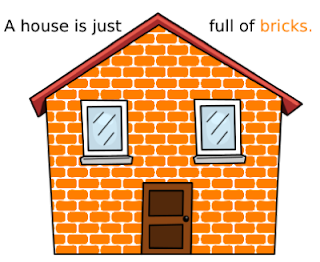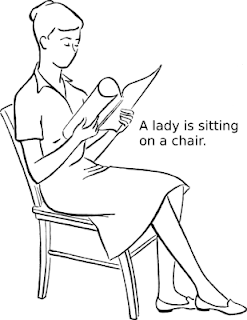Parts are very essential in anything and everything. We, as human-beings are mostly capable of surviving by ourselves because we know the parts that make our body and we try to utilize the parts to their full potential. For example, we know that we have two hands, eyes, legs, ears, a brain and so on. We also know what we can do with our hands, legs, etc.
Similarly, before we could speak in English or any other language, we need to know the parts that form a speech. This article will make you understand the parts of speech with examples.
Parts of speech:
There are 9 parts of speech.
1. Noun
2. Pronoun
3. Verb
4. Adverb
5. Adjective
6. Preposition
7. Conjunction
8. Interjection
9. Article
Let us now understand all the parts of speech in detail.
1. Noun:
Many people say name, place, animal and thing to let you understand noun easily. That is correct. To go one step further, a noun is any word that is complete in its form or the base word that results in other parts of speech. Only from a noun, we'll get words like verb, adjective, adverb, etc. You need not worry about this, as you'll automatically understand about noun once you speak in English regularly.
2. Pronoun:
A pronoun is used to replace a noun.
Example: I saw a dog walking on a road near my house. It was
looking tired.
In the above example, I introduced a dog in the first sentence and I replaced the word 'dog' with 'it'. Hence, 'dog' is a noun and 'it' is a pronoun. Similarly, he, she, they, etc. are pronouns.
3. Verb:
Any word that defines an action is a verb. To understand verb better, remove the verb from any sentence and you'll find the sentence looking awful.
Example: I am walking on the road.
In the above example, remove 'am walking' and read the sentence to understand the importance of verb.
4. Adverb:
The word itself says it. An adverb gives additional information about the verb. Let us use the same example, 'I am walking on the road'. When an adverb is added, the sentence may become,
I am walking on the road slowly.
The word 'slowly' indicates the speed at which the person is walking. Hence, it is an adverb.
5. Adjective:
Any word that describes a feeling or an emotion is an adjective.
Example: Ramesh is feeling sad.
In the above example, the word 'sad' is an adjective as it lets us know how Ramesh is feeling. The word 'sad' comes from its noun form, 'sadness'.
6. Preposition:
The word says it. A pre-position gives us the position of the object even before the sentence is completed.
Example: The pen is on the table.
In the above example, 'on' is the preposition as it lets us know where the pen is. From the example, eliminate the words 'the table' and the sentence would be like,
The pen is on "object".
This means that position is always known first and then, the object is known. That is why this is called as preposition. In this example, the object is a table.
7. Conjunction:
A conjunction is the easiest of the all the parts of speech to understand. When two or more sentences are joined together, we use a conjunction. Conjunctions are and, if, but, etc. There are many conjunctions which you might have used even without realizing.
Example: Vincent is my friend. He is a spoken English trainer.
In the above example, when we use a conjunction 'and', the resulting sentence is,
Vincent is my friend and a spoken English trainer.
8. Interjection:
The last of the parts of speech, an interjection, is a word of expression followed by an exclamation point. Examples are wow, ouch, hey there, etc.
Examples: Wow! He looks handsome!
Hey there! How are you?
Ouch! That is painful!
9. Article/Determiner:
An article is a very important part of speech. But, I have mentioned this as the 9th and final one in parts of speech because many websites lead to confusions with this, as some call this as the determiner, some call this as articles. Regardless of the confusions,
a, an and the are three articles which are used in any and every sentence. I will write a separate post to talk about the articles and their usage in detail. For time being, remember that 'an' is used only for words that have the
sounds, ah, eh, i, o and uh.
(
Click here for tips on how to speak in English with ease.)



